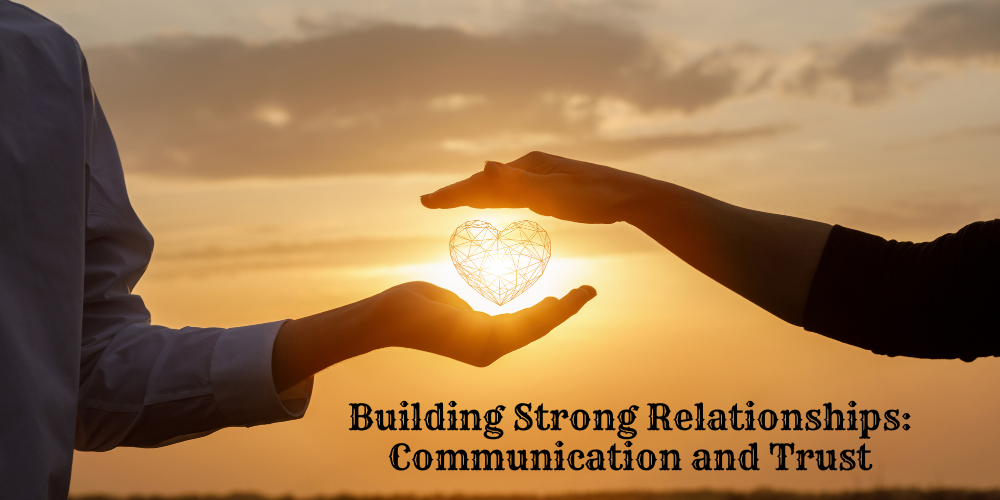Our relationships are the foundation of shaping who we are and everything we do in life. Strong relationships with family, friends, spouses or partners, and coworkers bring us support, happiness, and a feeling of belonging. Communication and trust are the two major fundamentals of any relationship.
The Power of Open Communication
Imagine trying to navigate a maze blindfolded. Frustrating, right? Communication in relationships is like having a map and a flashlight. It illuminates the path, helps you understand each other, and guides you through challenges.
Here are some key aspects of open communication:
- Active Listening: Truly listening includes more than just hearing words. It’s about paying attention to the speaker’s tone, body language, and underlying emotions. It’s about seeking to understand their perspective before formulating a response.
- Honest Expression: Sharing your thoughts and feelings authentically, even when it’s difficult, is crucial. Bottling things up can lead to resentment and misunderstandings.
- Constructive Feedback: Offering and receiving feedback with kindness and respect helps both individuals grow. Focus on certain behaviours and their impact rather than making personal attacks.
- Non-Verbal Cues: A major portion of communication is non-verbal. Pay attention to your body language, tone of voice, and facial expressions. These cues can often speak louder than words.
Trust: The Foundation of Connection
Trust is the bedrock and foundation upon which strong relationships are built. It’s the feeling of safety and security that allows you to be vulnerable and authentic with another person.
Here’s how to cultivate trust:
- Reliability and Consistency: Being there for someone, keeping your promises, and showing up consistently builds a sense of dependability.
- Honesty and Integrity: Truthfulness is essential for trust to flourish. Even small lies can erode trust over time.
- Respecting Boundaries: Everyone has their own limits and needs. Acknowledging and respecting those boundaries demonstrates care and consideration.
- Emotional Support: Being present and supportive during both good times and bad fosters a deeper connection and strengthens trust.
The Interplay of Communication and Trust
Communication and trust are deeply interrelated and mutually reinforcing. Transparent, open communication creates trust through understanding. Trust, in turn, leads to more open, honest, and authentic communication because people feel safe sharing without the fear of being judged or abandoned.
Navigating Challenges
Even the strongest relationships face challenges. Disagreements and conflicts are inevitable. However, healthy communication and a foundation of trust can help you navigate these rough patches.
- Focus on understanding, not just winning: Seek to understand the other person’s perspective, even if you disagree with it.
- Use “I” statements to express your feelings: This helps avoid blaming and defensiveness. For example, instead of saying, “You always make me feel…”, try “I feel… when…”.
- Take breaks when needed: If a conversation becomes heated, it’s okay to take some time to cool down and gather your thoughts.
- Seek professional help when necessary: If you’re struggling to overcome challenges on your own, consider seeking the guidance of a therapist or counsellor.
Conclusion
Every good relationship requires work and dedication. If you wish to have genuine communication in your life, it is through honest communication and building trust. Keep in mind that relationships are like gardens; they need the time and dedication to grow and flourish. Putting your time and energy into the bonds, intimate relationships will always repay you with love, support, and a sense of belonging.
Disclaimer
This blog post is for your reference only and should not be considered professional or personalized advice. If finding balance in your relationships is becoming a problem, please consider seeking out guidance from a qualified and trained therapist or counsellor.


